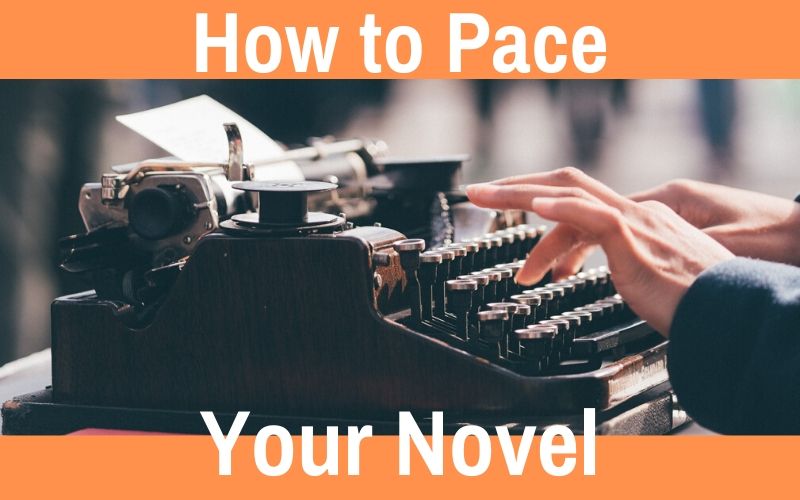Latest Writing Video! |
|
Pacing is something that few writers ever consider when writing their novel. Perhaps this is a good thing, as many writers have a natural sense of how to pace their novels. However, there are those who have too many quiet moments or far too many action scenes in their novel. I am going to show you how to pace your novel with an easy step-by-step process. Let’s jump into it! Finding Your AmbienceThe first step is simple. All you need to do is decide which feeling you want to create in your novel. Is your novel going to a longer, more character interaction oriented novel or is it going to feature a lot of conflict with heart-pounding suspense? Those who are starting their first novel have a great idea of which they want to feature more. You can’t write an action scene into every chapter, but you will have many action scenes longer than the quiet moments more frequently. Settle on which you enjoy writing more, or what you would enjoy reading more. It is easy to write for a general market, but your quality will be less than if you were to write for yourself. Plot and PlanningAt this point in the process you are now planning your novel. You have a list of scenes you want to include, not only for enjoyable reading, but to make sure the plot makes sense. With all these scenes in hand you, you now need to arrange them all to make sense. You might feel you have too many action scenes close to each other, in which case it might be better to include a scene of character progression or plot progression. Either characters are learning something from each other or discussing how to progress. If you choose the latter, I recommend you add some smaller conflict to make sure the scene contains more substance. With that all done and dusted, you know have a time-line and are ready to take the next step. Choosing Your ChaptersSome scenes are far too small to be chapters on their own, in which case they need to be written with others. It is better to have a chapter where many important scenes happen than to have a comically short chapter where only one scene transpires. Yet, as I said, if comedy is what you are going for, this may be a funny decision. Yet, this step is the most difficult one as it may take you back a step to ensure you have the right amount of scenes. You might find yourself with a chapter that contains too much and a chapter that contains too little. You may need to swap scenes if you can, but most likely you will create entirely new ones. With all that in mind, by the end of this step you should have all your chapters divided out before you. All your scenes organised and spaced out depending on what they contain. Sometimes, depending on the plot, you might have no choice but to include many slower chapters next to each other or have more action scenes next to each other. Settling on Your Word CountWhether you have decided already on a word count or not, you may want to divide it now proportionally throughout your novel. Chapters are always going to have an irregular number of words, you may even adjust this as you write your novel, but in deciding this now, you might find your novel too short or too long. There are writers who wish to write the story, no matter how long or short it is. Yet, there are many more who want their book to last longer than a weekend or simply be a weekend read. In which case, you need to examine how long your novel will be. 80,000 words or less is common for a novel that can finished in a weekend. These novels are more adventure oriented or simple light reading. The plot isn’t too intensive and the novel reaches a conclusion fairly quickly. 100,000 words usually make up novels that are more common with complex genres. Such as thrillers or mystery novels. Of course any genre can be written to be this long, but generally speaking the novel that require more words are far more complex than most genres. Once you have worked out your rough total word count, you must now decide if your novel is too short or too long for what it contains. Once more, this is a step that can take you back a step or two. You may find your novel is too long, in which case you need to decide if you want to lower the word count, which restricts you more or remove scenes that are less than necessary. If you want it to be longer, you can simply up the word count, which will slow the pacing, or increase the number of scenes, You will find yourself now adjusting everything, but a lot more easily than if this was your first step. By having your novel properly divided, your plot progressing in a way that is believable, fitting your taste in writing, you need only decided how long you wish your book to be. Of course, this is preference step and you might not care what the length of your novel is, as I stated before. In which case, you can skip this step and jump straight into writing. ConclusionPacing is a part of writing that few authors give much thought. As I said in the beginning, there are authors who have a natural sense of pacing and design their story well. There are those who struggle to pace their novels and read articles such as this to better plan their novel. You want to avoid being the author who has no idea how to pace their novel and has no clue that their pacing is irregular. In which case, their story falls flat, nonsensical to most readers. I hope you enjoyed this article and as always… Good day, goodnight and happy writing! Thank YouDear Writer, Thank you for finishing this article. I had a lot of fun writing it and I hope you truly enjoyed it. There are many things you will learn from the writing experience and the 150 above are only a few. As a big thank you I would like to offer you something for FREE! A writing course on how to improve your main character! Click here to check it out your course. In addition, if would like to receive more content, bonuses and some big discounts on future courses, join the writers group here. Thank you very much for reading! Kind regards Matthew Dewey, Writer Pin for Later
0 Comments
Leave a Reply. |







